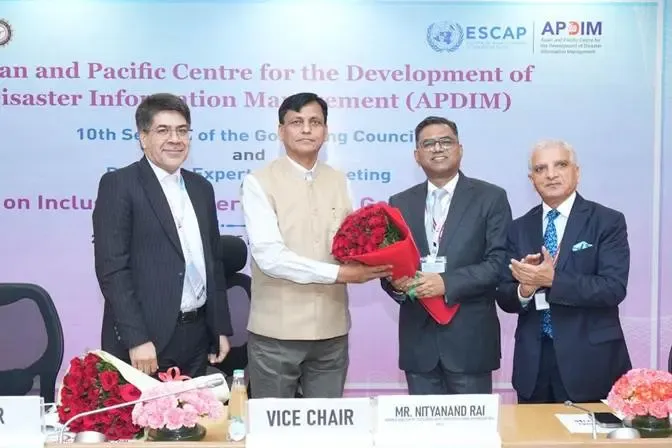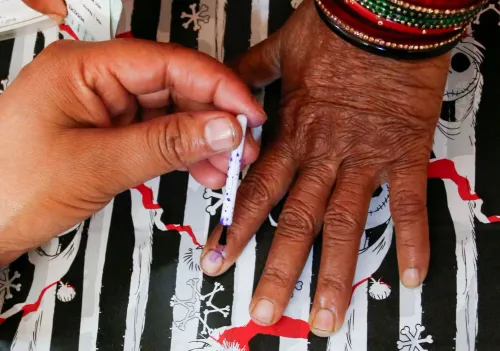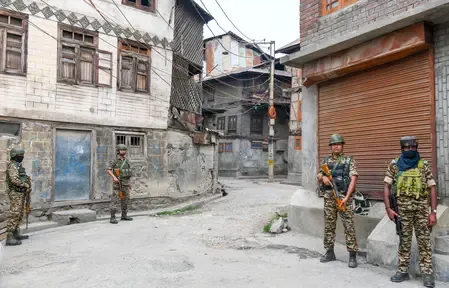Is India Committed to Disaster Risk Reduction in Asia-Pacific?

Synopsis
Key Takeaways
- India is enhancing regional cooperation for disaster risk reduction.
- The 10-Point Agenda focuses on local investment and innovative strategies.
- Collaboration with APDIM and UN ESCAP is key to India's approach.
- Future initiatives are planned for 2026-2030.
- Strengthening disaster resilience is a national priority.
New Delhi, Nov 22 (NationPress) The Minister of State for Home Affairs and Disaster Management, Nityanand Rai, reiterated the nation's resolve to bolster regional cooperation and adopt groundbreaking methods for disaster risk mitigation in the Asia-Pacific area.
During the 10th Session of the Asian and Pacific Centre for Development of Disaster Information Management (APDIM) focusing on Inclusive Disaster Risk Data Governance at Vigyan Bhawan, the MoS underscored India’s dedication to enhancing regional disaster resilience and partnership.
He pointed out that under India's Chairmanship and the guidance of Prime Minister Narendra Modi, the country will spearhead a thorough capacity-building initiative that includes risk evaluation, geospatial technologies, impact-based forecasting, timely warning distribution, and infrastructure planning that withstands climate challenges.
India reiterated its commitment to collaborate closely with APDIM and regional allies to mitigate disaster and climate-related risks in the Asia-Pacific.
The collaboration with the United Nations Economic and Social Commission for Asia and the Pacific (UN ESCAP), APDIM, and other multilateral platforms is steered by PM Modi’s 10-Point Agenda for Disaster Risk Reduction, he noted.
This agenda prioritizes local investments, harnessing technological advancements, fostering connections among academic institutions and research organizations, enhancing risk data, and encouraging regional collaboration.
The session wrapped up with a mutual pledge to strengthen regional partnerships and implement innovative approaches to disaster risk reduction in the Asia-Pacific.
During discussions, the Governing Council focused on last year's activities, upcoming initiatives for 2026, and the strategic plan for 2026-2030.
The results of this meeting will direct APDIM's overall program and contribute to achieving the objectives of the Sendai Framework and the 2030 Agenda for Sustainable Development.
The 10th session of the Governing Council saw attendance from heads of delegations and representatives from member nations, including Bangladesh, Iran, Maldives, Kazakhstan, Mongolia, and Turkey, along with observers from Tajikistan.
Also present were Stephen Cooper, Director of Administration at UN ESCAP; Letizia Rossano, Director of APDIM; Mostafa Mohanghegh, Senior Coordinator of APDIM; and other officials from the APDIM Secretariat, Iran, and observer organizations.









